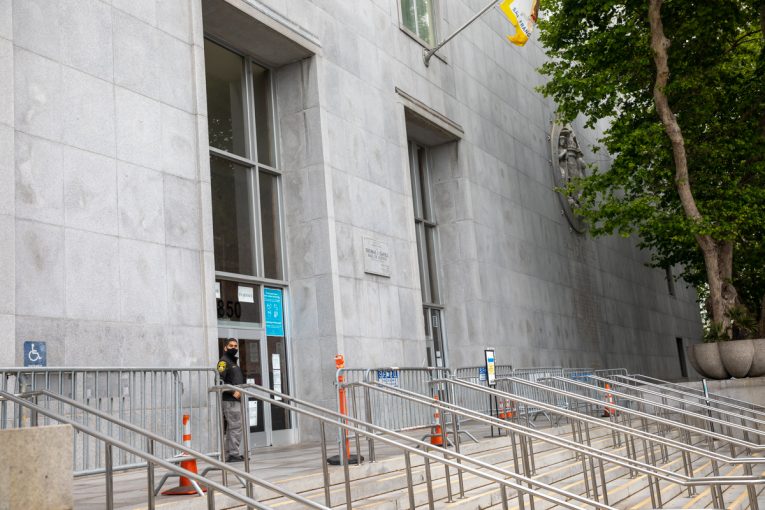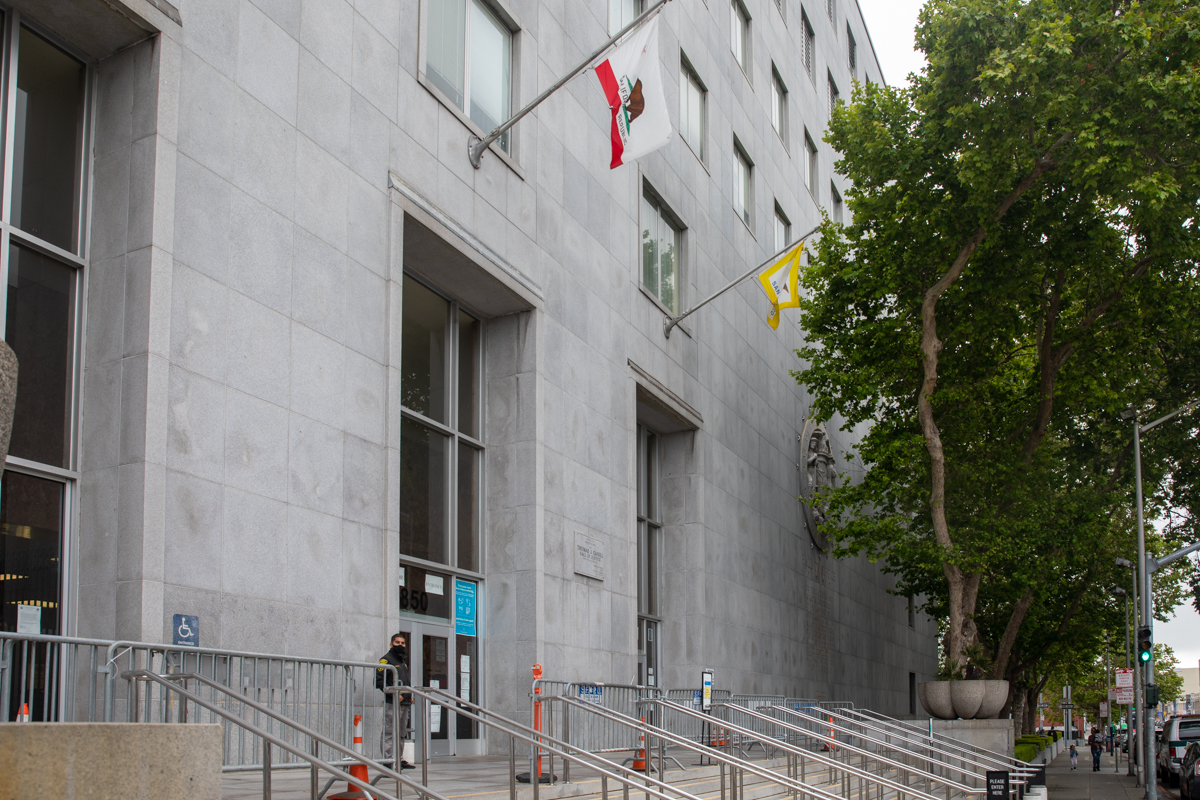
 By Tiffany Thai
By Tiffany Thai
SAN FRANCISCO, CA – San Francisco County Superior Court Judge Christopher C. Hite reconvened the second day of jury selection for a murder trial Thursday—Casey Murray is accused of murdering his girlfriend with a wine bottle.
Murray is being charged with seven counts, including murder, domestic violence, two counts of assault with a deadly weapon, assault with force likely to create bodily injury, and resisting arrest.
Murray was present in the courtroom. Deputy Public Defender Max Breecker represents Murray. Seated across the courtroom was Assistant District Attorney Ryan King.
Of the 24 seats in the front of the courtroom for questioning, 22 of the potential juror seats were filled. Two random jurors were called to fill those remaining two seats.
Judge Hite reminded potential jurors of their duty and stated that the Court had notified the jury of the charges on the previous day, such as the presumption of innocence, the burden of proof, and how the jurors should consider evidence that will be presented.
Judge Hite called on ADA King to begin his voir dire of the jury. He stated that he would first question the two potential jurors added to the pool of 24 and then move on to questions directed to the entire pool of potential jurors.
The first potential juror disclosed that he was a recovering alcoholic. The topic of alcohol is important to the case at hand, and the juror thought that case would not be a good fit for him.
Judge Hite asked the potential juror, “Can you focus on the facts and circumstances of the case and avoid personal input?” The juror stated, “Yes.”
The juror also brought up that he had witnessed a domestic violence incident involving his friend and their partner. Judge Hite again asked the potential juror whether the potential juror could set aside his circumstances and experience to complete the duty of a jury member. Again, the juror stated, “Yes.”
Turning to the second potential juror, DDA King asked the potential juror about the domestic violence case they had listed in their questionnaire.
The potential juror went into detail, mentioning although he did not see the incident of domestic violence occur, he heard it happen at the time. In response to ADA King asking whether or not the experience would shape the potential juror’s judgment, the juror understood that his circumstances could not affect his judgment.
ADA King then turned to voir dire of the entire jury pool by first asking them if the jurors had general concerns they would like to bring up.
A third potential juror stated that she works as a newspaper reporter and raised concerns that her work might impact her being a juror.
ADA King then addressed the jury pool and stated that the jury does not need to agree with the attorneys. In fact, “What attorneys say is not evidence.”
A fourth juror raised concerns that the decedent is an Asian woman. The juror’s wife is also Asian. ADA King said that so long as the personal experience of the juror was not brought into the trial, it would be okay.
ADA King stated that jurors should continually ask themselves, “Does this law actually apply based on the facts?”
A fifth potential juror was concerned about balancing the testimony of experts and the testimony of police officers. The potential juror is a scientist and said they might have trouble trusting police officers more than experts.
ADA King pressed the potential juror on whether they can separate their experience and instead take what they might be present with using fair judgment. ADA King asked that, if the police officers provided valuable evidence, would you (the juror) listen?
The juror stated that they could be fair and impartial if that were the case.
ADA King then asked the potential jurors if they donated to organizations or participated with any that deal with legal reform.
Several potential jurors noted the ACLU. However, most notably, a sixth potential juror stated they donated to the DSA, Democratic Socialists of America.
The ADA then asked whether any potential jury members were falsely accused of a crime.
A seventh potential jury member raised his hand and proceeded to discuss an incident where the San Francisco Police Department accused the potential juror of injecting himself in public by lying about where the juror was at the time of the incident.
The case was later dismissed because the police never showed up for the trial. However, the discussion gave the feeling that the potential juror was not trusting of police officers.
ADA King concluded his voir dire, and PD Breecker began his voir dire by questioning the two newest jury pool members.
First, PD Breecker questioned the second potential juror, briefly asking the juror to go more in depth regarding the domestic violence incident they heard.
PD Breecker asked whether the potential juror acknowledges that a woman can manipulate situations. The juror responded, “Yes.”
PD Breecker then turned toward the first potential juror and asked them questions regarding their experience with alcoholism, asking whether they would be tempted to bring in their experience.
The juror responded, “Alcohol is not a punishment, neither is a get-out-of-jail-free card.”
PD Breecker then asked the juror if they could keep an open mind. The juror agreed.
PD Breecker, before concluding his voir dire, directed jurors that “sympathy may not be a substitute for evidence.”
Judge Hite and the attorneys briefly left the courtroom to discuss which jurors should be struck.
When Judge Hite returned, he began by excusing the third potential juror, a newspaper reporter, and the sixth potential juror, who donates to the Democratic Socialists of America, which both parties agreed.
ADA King asked to excuse the first potential juror, a recovering alcoholic, and the seventh potential juror, an individual who has been falsely accused of a crime.
PD Breecker asked the court to excuse the fourth potential juror, who expressed his wife was of the same race as the victim.
Jury deliberations regarding this case will be ongoing throughout the week.






